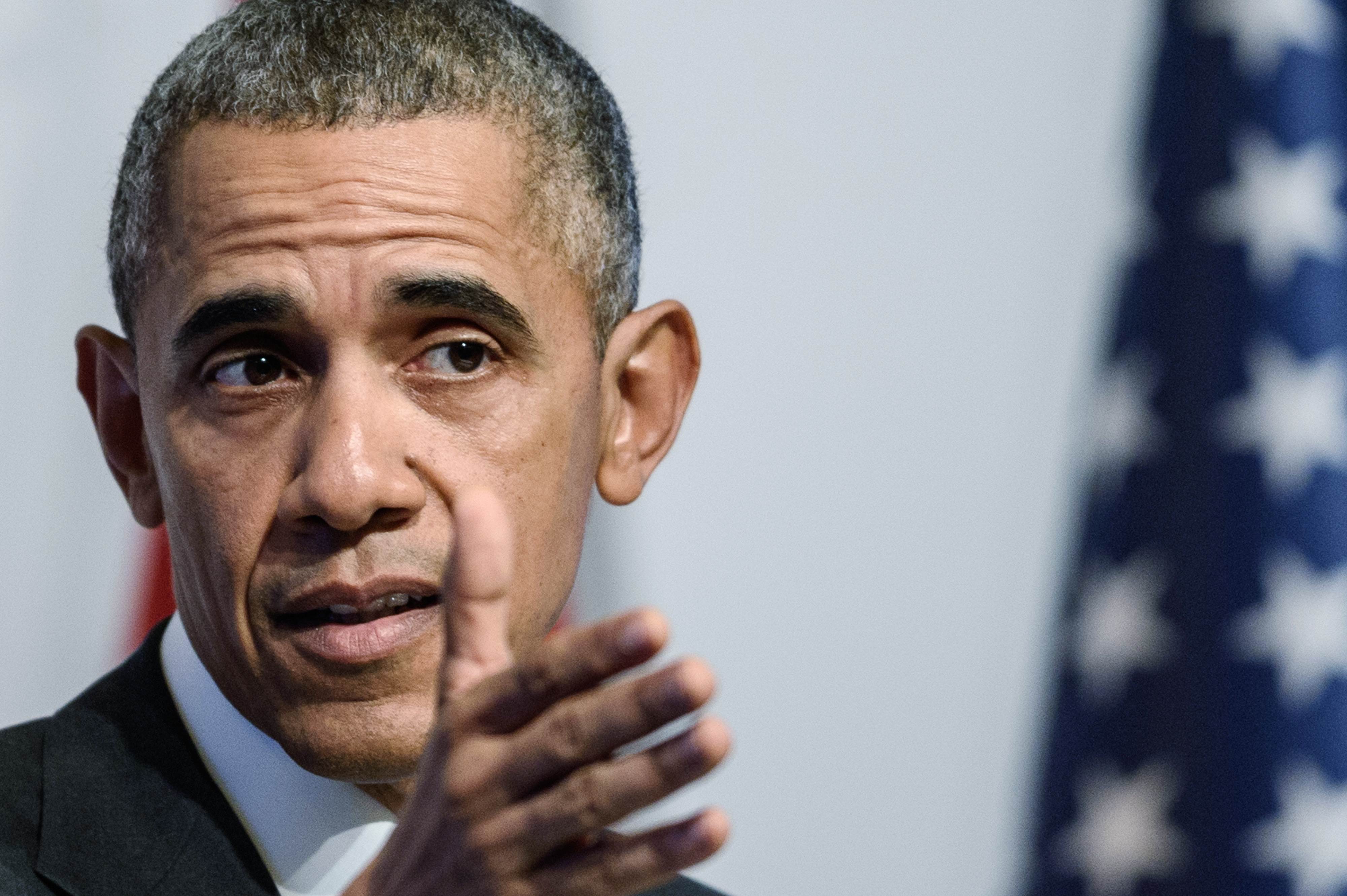President Barack Obama ruled out dispatching a major U.S. ground force against Islamic State in Syria and Iraq, saying it would be a "serious mistake" that would lead the nation into an unsustainable strategy requiring a long-term occupation in the region.
Obama called the Islamic State terror organization "the face of evil" and insisted the U.S. and its allies are shrinking its hold in Syria and Iraq even as the extremist group has demonstrated its ability to commit violence beyond the region.
The deadly attacks in Paris last week were "a terrible and sickening setback" in what will be a long campaign against Islamic State, Obama said Monday, shortly after meeting with leaders of European countries at a summit in Turkey.


















With your current subscription plan you can comment on stories. However, before writing your first comment, please create a display name in the Profile section of your subscriber account page.